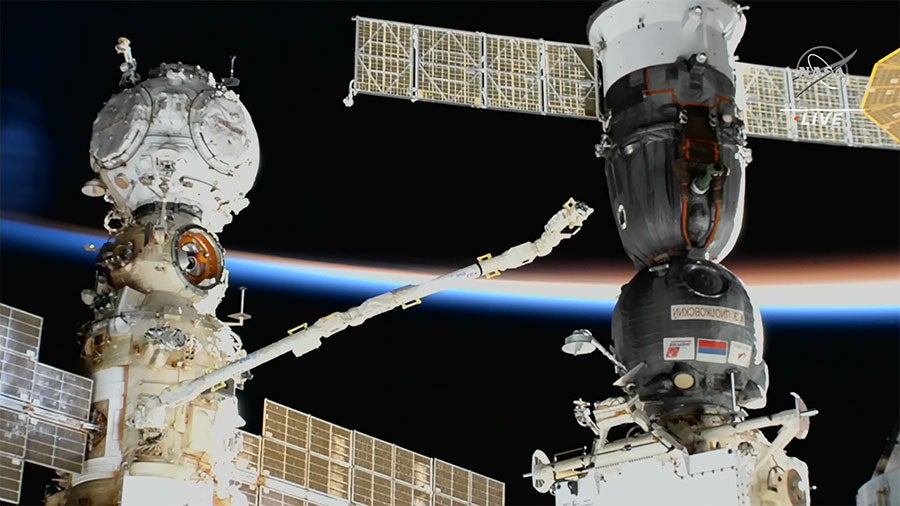‘Unexplained leak’ sends fluid spewing out of International Space Station

Your support helps us to tell the story
From reproductive rights to climate change to Big Tech, The Independent is on the ground when the story is developing. Whether it's investigating the financials of Elon Musk's pro-Trump PAC or producing our latest documentary, 'The A Word', which shines a light on the American women fighting for reproductive rights, we know how important it is to parse out the facts from the messaging.
At such a critical moment in US history, we need reporters on the ground. Your donation allows us to keep sending journalists to speak to both sides of the story.
The Independent is trusted by Americans across the entire political spectrum. And unlike many other quality news outlets, we choose not to lock Americans out of our reporting and analysis with paywalls. We believe quality journalism should be available to everyone, paid for by those who can afford it.
Your support makes all the difference.An “unexplained leak” on the International Space Station sent fluid spewing out into space.
A torrent of particles could be seen spurting out of the back of a Russian capsule that is docked at the station. That capsule had been due to take a crew back down to Earth – and it remains unclear what the status of that journey is, Nasa said.
The incident began when two cosmonauts were about to begin a routine spacewalk, which had to be called off as flight controllers investigated the problem.
The spray of fluid, which was visible in NASA’s live video feed as a torrent of snowflake-like particles emanating from the rear section of the Soyuz MS-22 capsule, was described by a NASA commentator as a coolant leak.
Nasa said none of the seven members of the current International Space Station (ISS) crew - three Russian cosmonauts, three US Nasa astronauts and a Japanese astronaut - was ever in any danger.
Nasa said that the US and Russian space agencies will “continue to work together to determine the next course of action following the ongoing analysis”.
The mishap occurred just as two of the cosmonauts, crew commander Sergey Prokopyev and flight engineer Dimitri Petelin, were suited and preparing for a planned spacewalk to move a radiator from one module to another on the Russian segment of the ISS.
An official for Russia’s mission control operations near Moscow was heard telling Prokopyev and Petelin in a radio transmission that their spacewalk was being canceled while engineers worked to determine the nature and origin of the leak.
The Nasa commentator on the livestream, Rob Navias, broadcasting from Nasa’s Johnson Space Center in Houston, also said the spacewalk was called off because of the leak, which he said began about 7.45pm local eastern time.
Navias said the Soyuz craft arrived at the space station in September, bringing Prokopyev, Petelin and US astronaut Frank Rubio to the ISS, and has remained attached to the Earth-facing side of the orbital laboratory.
The spacewalk planned for Wednesday was postponed once before, in late November, because of faulty cooling pumps in the cosmonauts’ spacesuits, Navias said.
The spacewalk was to be the 12th this year at the ISS and the 257th in the history of the 22-year-old platform for assembly, maintenance and upgrade work, according to Nasa.
Navias said it was too soon to know what implications the leak might have for the integrity of that spacecraft, and whether it might pose any difficulties for returning crew to Earth at the end of their mission.
Five other spacecraft are parked at the space station - two SpaceX capsules (a Crew Dragon and Cargo Dragon), a Northrop Grumman Cygnus spacefreighter and two Russian resupply ships, Progress 81 and Progress 82.
The ISS, spanning the length of a U.S. football field and orbiting some 250 miles above Earth, has been continuously occupied since 2000, operated by a U.S.-Russian-led partnership that includes Canada, Japan and 11 European countries.
Join our commenting forum
Join thought-provoking conversations, follow other Independent readers and see their replies
Comments